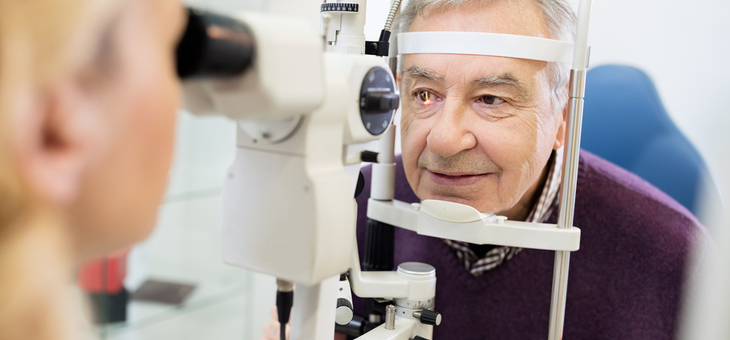Medical experts are concerned that the COVID-19 pandemic is causing many people to ignore or defer other important health checks.
The latest plea to maintain regular medical care comes from an eye expert who warns that missing appointments could result in permanent loss of sight.
The call comes as eye specialists report a record number of people cancelling eye appointments.
Vision Eye Institute ophthalmologist and retinal specialist Dr Simon Chen says that while social distancing is necessary, missing vital appointments as a result must be avoided.
“We understand there is a lot of confusion surrounding COVID-19 social distancing measures,” he said.
“If an eye doctor has recommended eye injections, the course of treatment should be continued as directed without exception. Missing appointments or choosing not to have injections can lead to permanent vision loss.”
Dr Chen’s comments came at the launch of Macula Month, an awareness campaign for macular disease, the leading cause of blindness and severe vision loss in Australia.
Macula Month 2020 emphasises the importance of maintaining macular health throughout the COVID-19 pandemic.
Dr Chen said that eye injections were considered an essential medical service and patients and carers should continue to prioritise treatment.
“Eye injections are used to treat sight-threatening retinal conditions and discontinuing treatment can result in permanent vision loss,” he said.
“Eye injections are considered an essential medical treatment – patients and carers should continue to attend regular appointments with an ophthalmologist.”
The term, macular disease, refers to a broad range of painless disorders affecting the macula (part of the retina at the back of the eye), namely age-related macular degeneration (AMD) and diabetic eye disease. Collectively, macular disease is the leading cause of legal blindness and severe vision loss in Australia.
Eye injections are commonly used to treat retinal and macular conditions such as wet AMD, diabetic retinopathy, diabetic eye disease and retinal vein occlusion.
Dr Chen said these conditions usually required regular, ongoing injections administered by an ophthalmologist to prevent, and potentially reverse, vision loss.
“Since the pandemic was declared, all Vision Eye Institute practices have remained open to provide continuity of care to those who require vision-saving treatment,” he said. “Clinics and day surgeries are observing strict social distancing practices and hygiene protocols to minimise any risk of viral transmission.
“Everyone’s sight is precious, and we want to make sure that the macular disease community continue to receive the help and vision-saving treatment they need throughout the COVID-19 crisis.
“Australians need to take action now and make healthy lifestyle choices that will promote macular health. By practising a few simple habits, you can not only reduce your risk of developing a macular disease, but also slow progressive vision loss if you are already affected.”
These practices include:
- monitoring your eye health
- quitting smoking
- eating a balanced and nutritious diet.
Dr Chen said the first step in maintaining eye health was to have regular eye checks, whether or not you needed glasses.
“It’s also a good idea to do regular tests at home. For people over 50, look at a straight edge, such as a door or window. If any of the lines seem wavy, missing or blurred, this should prompt an urgent appointment with an optometrist.
“Sudden changes in vision, eye pain or discomfort, flashes of light or new floaters are also urgent symptoms that require medical attention.”
Macular disease affects the central part of the retina (the macula) that is responsible for central and fine-detail vision. It does not result in total vision loss, but can significantly affect a patient’s quality of life. And because macular disorders are painless, many people may be unaware they have the disease until it is in the advanced stages.
Vision Eye Institute says that age-related macular degeneration is the most common type of macular disease, with more than 1.29 million Australians over 50 showing some evidence of AMD.
Are you guilty of putting off a regular medical check in the past few months? Are you a candidate for eye disease?
If you enjoy our content, don’t keep it to yourself. Share our free eNews with your friends and encourage them to sign up.
Related articles:
Experts fear ‘second wave’ of virus
Cancer cost shock for private patients
Is this why isolation is so tiring?

